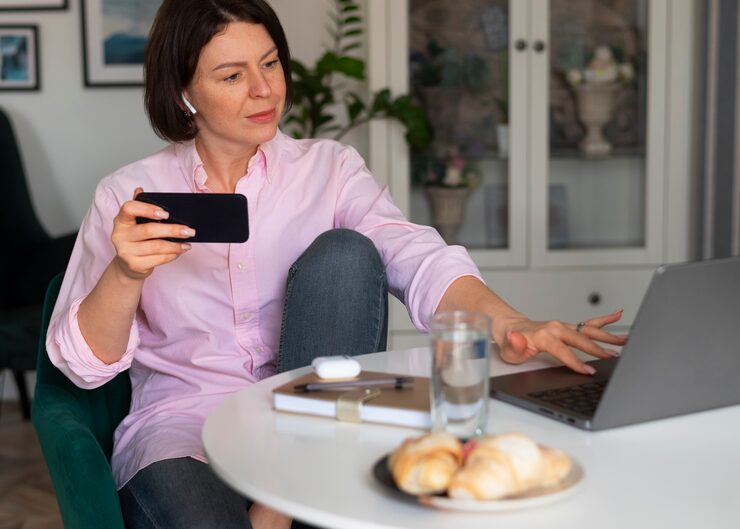In today’s hyper-connected world, screens dominate almost every aspect of our lives — from smartphones and laptops to TVs and tablets. While technology brings convenience and entertainment, it also silently contributes to digital fatigue and mental burnout.
That’s where a digital detox comes in. It’s not about rejecting technology altogether but about reclaiming balance and giving your mind and body the break they truly deserve.
Let’s explore why unplugging is so vital, the hidden screen time effects, and the best mental health tips to help you start your journey toward digital balance.
The Hidden Costs of Constant Connectivity
Being online 24/7 can take a toll on your health. Prolonged screen time impacts your eyes, posture, sleep cycle, and even your emotions.
1. Eye Strain and Headaches
Staring at screens for hours can cause digital eye strain, blurry vision, and headaches — a clear sign your body needs rest.
2. Poor Sleep Quality
Blue light emitted from devices disrupts melatonin, the hormone that controls sleep. Reducing screen exposure before bedtime is a crucial digital detox step for deeper rest.
3. Mental Fatigue and Anxiety
Too much information, social media comparisons, and online noise can overwhelm your brain. Studies show that excessive screen time effects can lead to higher stress and anxiety levels.

The Benefits of a Digital Detox
Taking time off from screens doesn’t just clear your mind — it resets your energy and helps you reconnect with what truly matters.
1. Improved Focus and Productivity
When you’re not checking notifications every few minutes, your brain can concentrate better. A digital detox allows you to regain mental clarity and perform tasks more efficiently.
2. Better Mental Health
Unplugging helps reduce anxiety, improve mood, and boost mindfulness. These small breaks are among the best mental health tips for emotional balance.
3. More Meaningful Relationships
Stepping away from screens helps you be present — to truly listen, connect, and engage with people around you.
Science-Backed Mental Health Tips to Balance Screen Time
Balancing digital life isn’t about quitting technology — it’s about using it wisely. Here are a few mental health tips supported by psychologists and wellness experts:
-
Set Screen-Free Hours: Designate at least one hour before bed and one after waking up as screen-free.
-
Use the 20-20-20 Rule: Every 20 minutes, look at something 20 feet away for 20 seconds to reduce eye strain.
-
Turn Off Non-Essential Notifications: Constant alerts increase stress. Disable what isn’t important.
-
Prioritize Real Conversations: Call or meet someone instead of texting.
-
Practice Digital Mindfulness: Be aware of your emotions when scrolling — if it drains you, step away.
How to Start Your Digital Detox
A successful digital detox doesn’t have to be extreme. Start small and gradually make it part of your routine.
-
Track Your Screen Time: Use built-in phone settings to understand your daily usage.
-
Create Tech-Free Zones: Keep devices out of the bedroom or dining area.
-
Replace Screen Habits: Read, go for a walk, meditate, or journal.
-
Take a Social Media Break: Even a few days off can significantly lower anxiety.

digital detox
Remember, a digital detox is not about disconnecting from the world — it’s about reconnecting with yourself.
Final Thoughts
Technology is a powerful tool — but only when it serves you, not controls you. By embracing a digital detox, becoming aware of screen time effects, and following simple mental health tips, you can create a healthier, more intentional relationship with your devices.
Your mind deserves rest, and your focus deserves freedom. The future of wellness lies not just in innovation but in balance.
FAQs
Q1. What is a digital detox?
A: A digital detox is a period where you intentionally reduce or eliminate the use of digital devices to restore mental and physical health.
Q2. How long should a digital detox last?
A: Even short breaks — like a few hours or a weekend — can make a big difference.
Q3. What are the main screen time effects on health?
A: Excessive screen use leads to eye strain, poor sleep, reduced focus, and increased anxiety.

